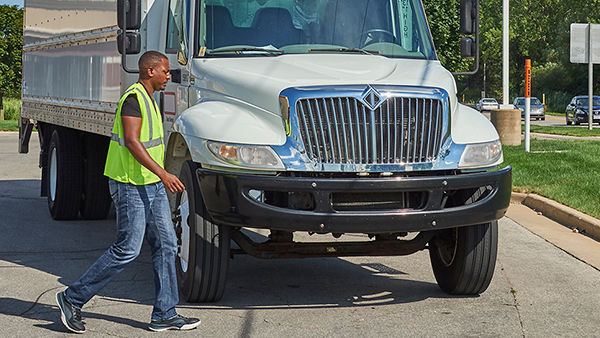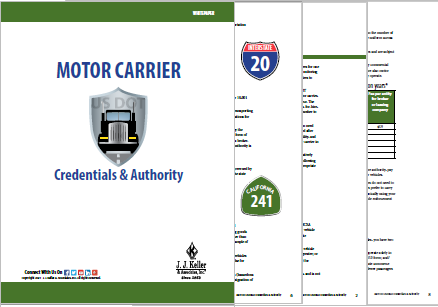The FMCSA regulates motor carriers for one primary purpose: to protect the public. Attempting to determine if you have the necessary FMCSA-required operating credentials can be a daunting task. Download this free whitepaper for more information on what operating authority is needed and when, MCS-150, Unifed Carrier Registration (UCR) and more.
What to Consider Before You Merge or Acquire Another Transportation Company
Rick Malchow, Industry Business Advisor
May 14, 2021

There's no shortage of advice on how to structure a "deal" to merge two companies into one, create a new subsidiary, or to buy assets. If you are looking to merge or acquire another transportation company, there's not nearly as much DOT compliance advice. Sure, you're got to consider taxes, business structure, and finances and we encourage you to see professional guidance in those areas. What J. J. Keller & Associates knows and help with are the DOT considerations — and there are lots of them. Unfortunately, DOT considerations are often not reviewed on the front end but rather after the close. By then, there's nothing to consider, whatever the deal is will determine the resulting items.
Consideration #1: There is no grace period
Post-acquisition, the number one question is a fill in the blank, "How much time do we have to _______?" The blank could be nearly anything: get insurance, obtain a USDOT number, register the vehicles, qualify the drivers, install ELDs, re-letter the vehicles, etc. In nearly every instance the answer is none — particularly if the acquired operation no longer exists as a legal entity. Assuming a friendly transaction, you may consider creating a space to get these done through lease agreements.
Consideration #2: "Warts & All"
There are exemptions for driver's qualification files and drug and alcohol testing. To use these exemptions, however, the qualifiers need to be met. Chief among the requirements is that there can be no gap in employment. This means the gaining company cannot pick and choose which drivers they want and which they don't. A huge consideration to be sure. A large time savings on one hand, but a major liability risk on the other. In addition, the new company accepts the records "warts and all" which means in an audit or compliance review, there's no saying "that the way we inherited them." You want to be sure it's done right.
Consideration #3: Division or subsidiary
Okay, we said we'd leave the structure to other professionals, like corporate attorneys — and we will. However, to structure as a division or a subsidiary is an important distinction for DOT compliance. A subsidiary is its own legal entity meaning that it must also have its own USDOT number to track safety and compliance. That means separate driver files, drug and alcohol testing programs, ELDs, vehicle inspections, violation tracking, and compliance reviews to name a few. If you don't want the separation and you want to keep the "brand," consider an asset only acquisition and use the old name as brand name as a division name. A division does not have a legal entity identifier like an employer identification number (EIN or FEIN). A division needs to operate under the company's USDOT number and compliance program. If the brand name or doing business name (DBA) is included on the MCS-150, the vehicles can be branded as predominately as desired with the acquiring company's USDOT number.
Other considerations:
Before the closing consider how the following will be taken care of:
- File authority transfer information with FMCSA
- New insurance
- Designate process agents
- Obtain new USDOT # for any new entities
- Obtain UCR registration for any new entities
- Transfer Random Drug/Alcohol Testing services to reflect new USDOT number
- Check with base jurisdiction regarding need for new IRP/IFTA accounts. Change in FEIN usually requires new accounts.
- Obtain/transfer NY, KY, NM, OR weight/distance tax accounts
- Obtain other state accounts as necessary (intrastate authority, etc.)
- Obtain necessary provincial safety regulations
- Change name/USDOT number on vehicle
J. J. Keller advisors can help you through the entire process of merging or acquiring a transportation company, call 888.473.4638.
FREE Motor Carrier Credentials & Authority Whitepaper & Quote
